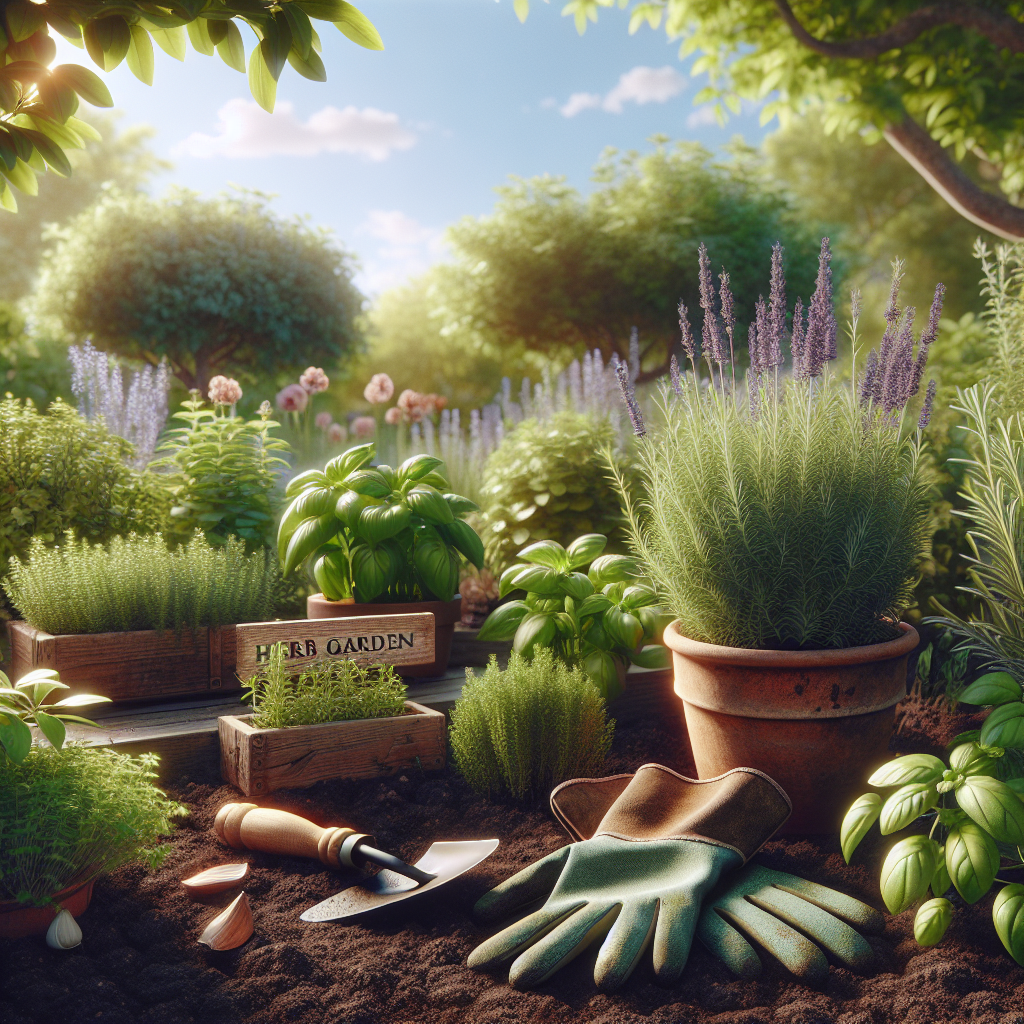Growing Herbs: Tips for a Fragrant Garden
Herbs have the power to transform your garden into a sensory haven filled with fragrance and beauty. Not only do they provide fresh flavors for your kitchen, but they also attract beneficial insects and serve as an easy-to-maintain addition to any backyard space. In this post, we’ll explore the best practices for cultivating a vibrant, aromatic herb garden that will be the envy of your neighborhood and a delightful retreat for you and your family.
Selecting Your Herbs
The first step in creating your fragrant garden is to choose the right herbs. Consider both the climatic conditions of your area and your personal taste preferences. Some popular and easy-to-grow options include lavender, rosemary, basil, mint, and thyme. These herbs not only offer strong scents but also provide a wide range of culinary uses.
For additional guidance on which herbs to choose and how to care for them, The Old Farmer’s Almanac is an excellent resource for gardeners of all levels.
Location and Soil Preparation
Herbs thrive in locations with good drainage and plenty of sunlight. Most herbs require at least six hours of direct sunlight per day. When preparing the soil, aim for a pH between 6.0 and 7.0, although some herbs have specific pH requirements. Test your soil and amend it with organic matter to ensure it provides the proper nutrients and drainage.
The University of Maryland Extension provides an insightful guide on soil amendments that can help you enrich your garden bed effectively.
Planting Your Herbs
Before planting, think about the growth patterns of the herbs you’ve chosen. Some, like mint, are aggressive spreaders and are better planted in pots to keep them contained. Others, such as rosemary and thyme, can coexist peacefully when spaced properly.
Herbs can be started from seeds or transplants. Beginners might find it easier to start with young plants, which can be obtained from local nurseries or online garden suppliers. When planting, make sure to loosen the roots gently and space the plants according to their mature size to avoid overcrowding.
One excellent online nursery to consider is Mountain Valley Growers, which offers a vast selection of herb plants and organic gardening products.
Watering and Fertilization
While establishing your herb garden, ensure consistent moisture without overwatering, as herbs generally prefer a drier soil. Once established, most herbs are drought-tolerant. A simple way to check if your herbs need water is to touch the soil; if it is dry an inch below the surface, it’s time to water.
As for fertilization, herbs typically require less than other garden plants. Over-fertilization can lead to lush foliage with diluted flavor. Stick to a mild, organic fertilizer and apply it sparingly throughout the growing season.
Pruning and Harvesting
Pruning is not only essential for maintaining the shape of your herbs but also encourages fuller growth and more vigorous production of the aromatic oils that give herbs their fragrance. Harvest your herbs regularly by removing the top leaves, which will stimulate new growth. Always harvest in the morning after the dew has evaporated for the best flavor.
Pest Control
A healthy herb garden will often attract beneficial insects that help control pests naturally. However, if you do experience pest issues, opt for organic measures when possible. Insecticidal soap and neem oil are good choices for managing minor infestations without harming the environment.
For an in-depth look into organic pest control strategies, consider the expert advice offered by Rodale’s Organic Life, which is renowned for its natural gardening solutions.
Winter Care
In colder climates, some herbs may need winter protection. Mulching with straw or leaves can help to insulate perennial herbs. Alternatively, many herbs can be potted and brought indoors to enjoy year-round.
Adding Extras
Consider complementing your herb garden with other elements such as stepping stones, ornamental grasses, or flower borders to enhance the garden’s aesthetic appeal. You can have an utterly enchanting space that delights all the senses.
Conclusion
Building and maintaining a fragrant herb garden is an enriching experience that touches upon the joys of gardening while providing practical benefits for cooking and wellness. By following these tips and utilizing them according to your unique garden space, you’ll cultivate not just herbs but a true extension of your home.
Incorporating herbs into your garden is a decision you’ll appreciate as the seasons pass—there is nothing quite as satisfying as walking into your backyard and being greeted by the aromatic blend of your thriving herb collection. So roll up your sleeves and start planning your fragrant haven today.

